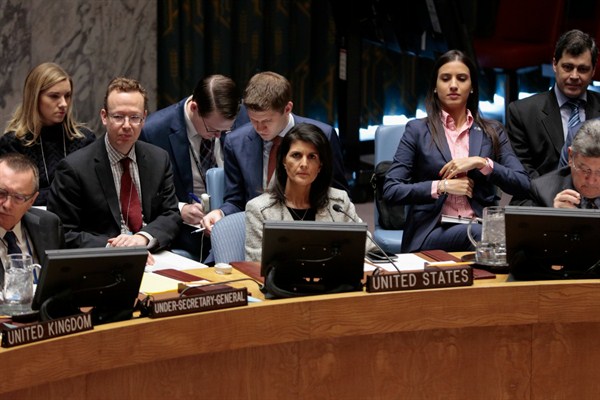If you want to write about the United Nations these days, you need a thick skin.
The Trump administration’s decision to cut funding to the U.N. in its first proposed federal budget, announced last week, has unleashed a vitriolic argument in the U.S. about the organization and its values. This is not new. The American left and right have long debated the U.N. in heated terms, often with little reference to what it really does.
This debate last peaked a decade ago, after the Security Council refused to endorse the U.S. invasion of Iraq. The darker corners of American bookstores were soon lined with anti-multilateral screeds with titles such as “The Global War on Your Guns: Inside the U.N. Plan to Destroy the Bill of Rights.” As an aspiring U.N. researcher at the time, albeit one without any designs on America’s firearms, I had a closeted addiction to this dross.

